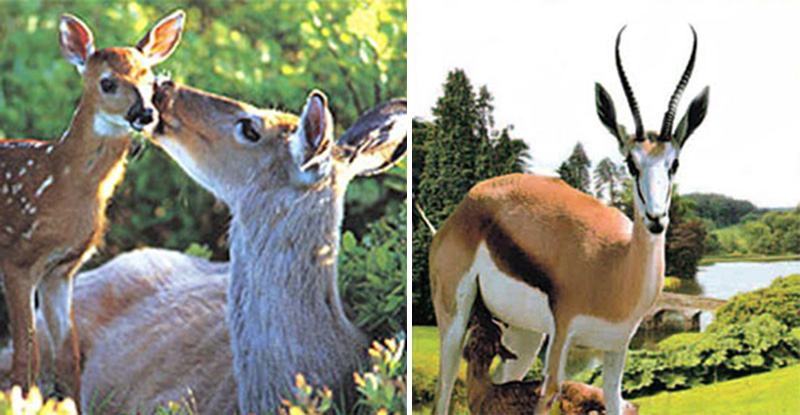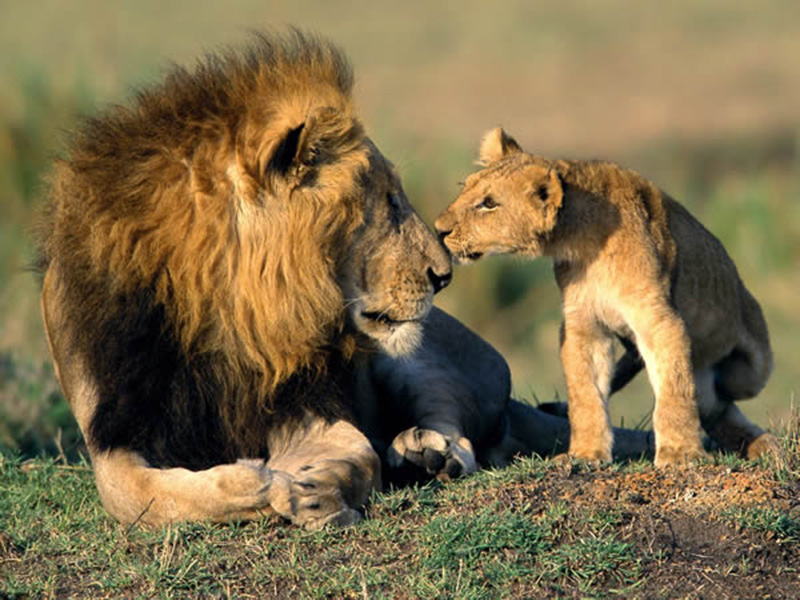Bigotry: The Dark Danger
Devotion Among Animals Revealing the Work of God

DOWNLOAD THE BOOK
CHAPTERS OF THE BOOK
< <
1 / total: 6
IntroductionNow, at the beginning of the twentyfirst century, Darwin's theory of evolution is rapidly losing its scientific crediHbility. This theory, which materialists embraced at the turn of the 20th century and imposed on the masses as scientific fact, has now been clearly recognized as invalid. The most influential factors behind this were developments taking place in microbiology, paleontology and biochemistry, all sciences that have a bearing on evolutionary theory. Discoveries in these scientific fields revealed that life could not have evolved progressively, by chance and through trial and error, as Darwin's theory proposed. (For details see the chapter "The Evolution Misconception") The theory of evolution could never provide scientific evidence for its claims about the origins of life. Also, it left unanswered questions about the origins of living creatures' countless extraordinary features. One of the many considerations that led the theory of evolution into an impasse is the devotion shown by living beings—the subject of this book. Animals in nature often display acts of devotion and altruism, form relationships based on solidarity and cooperation; and exhibit tender behavior toward one another. These all represent important, irresolvable issues for the theory of evolution.
When Darwin proposed his theory, he based his claims on a mechanism he called "natural selection" that by itself, had no evolutionary capabilities. According to his thesis, all life originated from one common ancestor, which developed into different species as a result of environmental differences. Those who adapted best to their environments survived, to reproduce and pass on to the next generation whatever small genetic changes they had acquired. Thus, after a long period of time, only the fittest and most adaptable individuals escaped extinction. Darwin suggested that all species in nature engaged in a struggle for survival, in which the fittest came out on top and the weak perished. Julian Huxley, an ardent supporter of evolution, defined nature in this way: ... [M]uch of the struggle for existence is not directed against the forces of nature, nor against enemies, nor against competitors of other species, but against other members of the same species. Not only does the species as a whole have to struggle (in a metaphorical sense) to survive and reproduce, but so do the individuals within it.1 But is it true, as the evolutionists claim, that the natural arena is governed by the merciless rules of a selfish struggle for survival, in which the strong dominate and the weak are eliminated? We can find the answer to this question by investigating nature itself. Certainly all living things must seek out food and safety; and every creature must hunt for nourishment and become aggressive in its own defense. However, this is not the only principle at work. The great majority of creatures display selfless acts unequalled of devotion for their offspring and families, for other animals in the herd or in some cases, even for other species. The animal kingdom often displays behaviors that reflect devotion and cooperation, solidarity and guarding one another's interests.
The theory of evolution, claiming that nature is only an arena for warfare, can in no way explain these examples of devotion. Living things disprove evolution's central claim, clearly and definitely. Natural selection can never explain why a zebra that has just escaped a predators' attack risks its own life by returning to save other members of its endangered herd—nor, for that matter, why the silverside fish should risk death by coming ashore so as to help ensure the survival of their eggs. According to the claims made by evolutionists, natural selection should have eliminated this kind of altruistic behavior long ago. Along with invalidating the theory of evolution, devotion and cooperation in animals provide evidence of an important truth: that the whole universe has been created by a superior being; and that each and every creature acts on the inspiration of God, its Creator. In the next few pages, you will be reading about some of the astonishing and admirable behaviors exhibited by animals, who have no power of intellect. Anyone of reason and conscience will easily understand that such behavior can occur only by the power and control of God, the Lord of all living things. As He reveals in the Qur'an: And in your creation and all the creatures He has spread about, there are Signs for people with certainty. (Qur'an, 45: 4)
Footnotes1.Julian Huxley, Man in the Modern World (USA: The New American Library, October 1952), p. 173. |
1 / total 6
You can read Harun Yahya's book Devotion Among Animals Revealing the Work of God online, share it on social networks such as Facebook and Twitter, download it to your computer, use it in your homework and theses, and publish, copy or reproduce it on your own web sites or blogs without paying any copyright fee, so long as you acknowledge this site as the reference.

